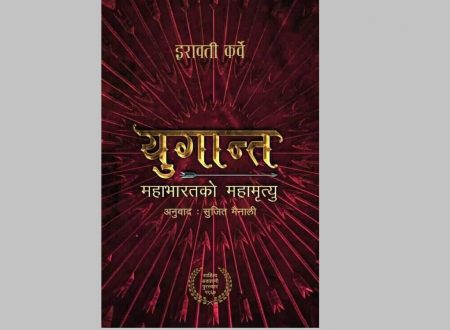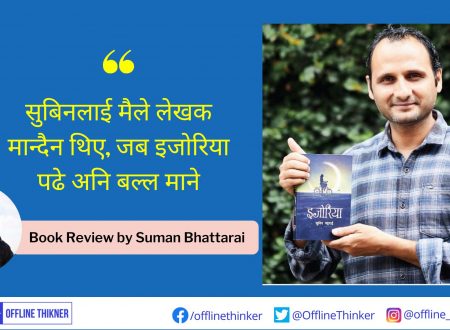Top 5 Nepali Book | Famous Nepali Writers | Review
Nepali literature boasts a rich tapestry of books and writers that have made significant contributions to the literary world. Among the top Nepali books, “Palpasa Café” by Narayan Wagle stands out as a powerful exploration of love, war, and the impact of political turmoil on individuals. Buddhisagar’s “Karnali Blues” is a captivating coming-of-age story that delves into themes of identity, societal expectations, and the resilience of the human spirit. Another notable work is Amar Neupane’s “Seto Dharti,” which sheds light on the struggles faced by marginalized communities in Nepal and prompts readers to contemplate social injustices. Jhamak Kumari Ghimire’s memoir, “Jivan Kada Ki Phool,” is an inspiring testament to the power of determination and the transformative potential of writing. These works, among many others, showcase the immense talent and diverse voices of Nepali writers, and they offer readers an opportunity to explore the complexities of Nepali society, culture, and human experiences.
1. Palpasa Café | Author: Narayan Wagle
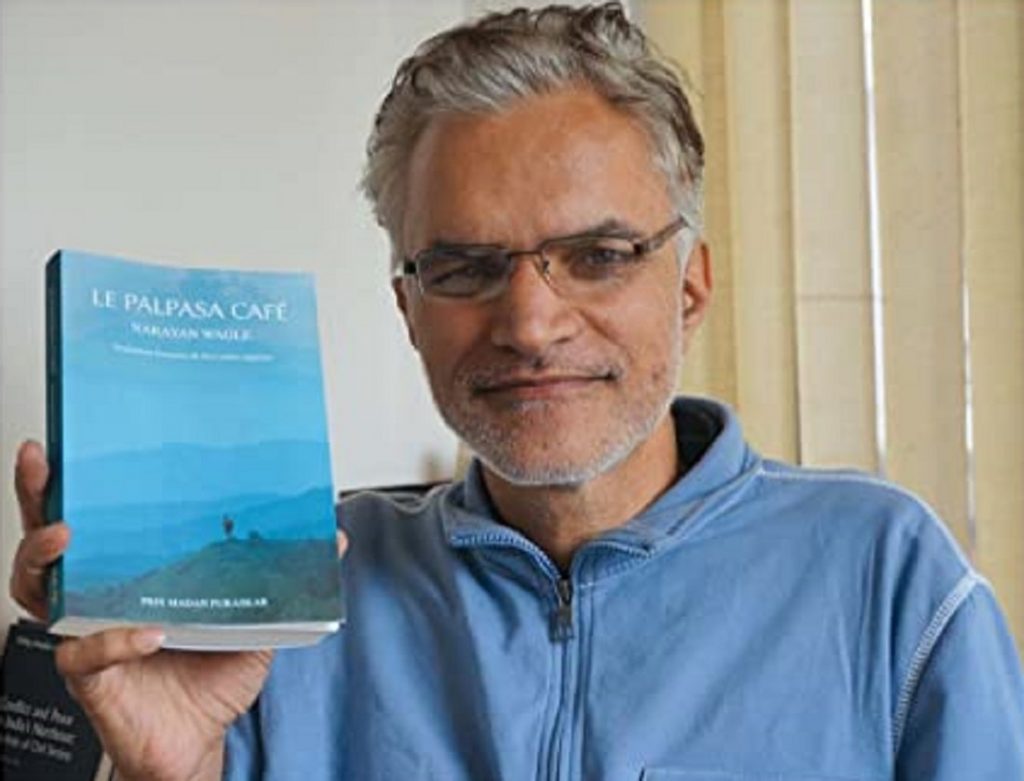
Review:
Palpasa Café by Narayan Wagle is an extraordinary and thought-provoking novel that captivates readers with its poignant portrayal of love, war, and the tumultuous political landscape of Nepal. Set against the backdrop of the Maoist insurgency, Wagle weaves a compelling narrative that leaves a lasting impression.
The story revolves around the lives of Drishya, a talented artist, and Palpasa, a foreign aid worker. As the conflict intensifies, their paths intertwine, and their personal struggles mirror the larger socio-political turmoil gripping the nation. Wagle skillfully explores the complexities of human relationships, delving into the profound impact that war and violence can have on love, hope, and dreams.
One of the most striking aspects of Palpasa Café is the vivid and evocative depiction of Nepal’s landscapes and cultural heritage. Wagle’s descriptions transport readers to the picturesque villages, bustling cities, and awe-inspiring mountains of Nepal, immersing them in the country’s beauty and diversity. The author’s ability to breathe life into the settings creates a rich and immersive reading experience.
Moreover, the novel sheds light on the harsh realities faced by ordinary Nepali people during times of conflict. It sensitively portrays the struggles, fears, and dilemmas of individuals caught between their personal aspirations and the demands of the revolution. The characters in Palpasa Café are multi-dimensional, and their journeys reflect the larger narrative of a nation in turmoil.
Wagle’s writing style is both poetic and accessible, allowing readers to engage with the story on multiple levels. His prose flows smoothly, and the emotional depth of the characters is skillfully conveyed. The pacing of the novel keeps readers engrossed, as it seamlessly alternates between moments of introspection and the adrenaline-fueled chaos of the war-torn landscape.
Palpasa Café is not merely a love story set in a time of conflict; it is a profound exploration of the human spirit and the power of art to transcend adversity. It raises thought-provoking questions about identity, loyalty, and the meaning of home. The novel’s ability to evoke empathy and challenge preconceived notions is a testament to its literary merit.
In conclusion, Palpasa Café is a remarkable novel that leaves an indelible mark on its readers. Narayan Wagle’s masterful storytelling, combined with his intimate knowledge of Nepal’s socio-political climate, creates a narrative that is both engaging and enlightening. It is a must-read for anyone seeking to understand the human experience amidst the backdrop of war and upheaval.
Rating: ★★★★☆
2. Seto Dharti | Author: Amar Neupane
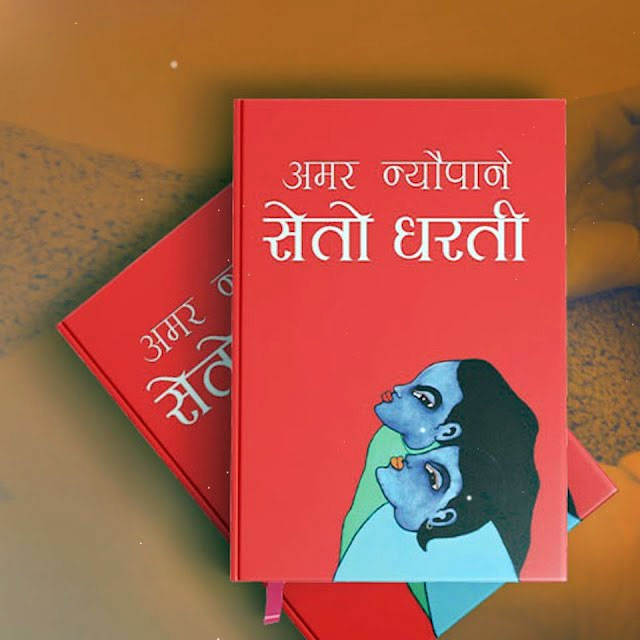
Review:
Seto Dharti, penned by Amar Neupane, is a deeply moving and socially relevant novel that shines a light on the profound struggles faced by marginalized communities in Nepal. Through its poignant storytelling, the book explores themes of caste discrimination, poverty, and the resilience of the human spirit.
The novel is set in a remote village in Nepal, where the lives of the inhabitants are intricately entwined with the land they cultivate. Neupane’s descriptive prose paints a vivid picture of the village, its serene beauty contrasting with the hardships endured by its people. The author’s keen attention to detail brings the setting to life, immersing readers in the sights, sounds, and even the scents of rural Nepal.
The characters in Seto Dharti are multi-dimensional and relatable, each with their own hopes, dreams, and personal struggles. The protagonist, Harsha, embodies the aspirations of a generation burdened by societal expectations and the weight of tradition. As the story unfolds, the readers witness Harsha’s journey of self-discovery, as he confronts the harsh realities of caste discrimination and societal injustice.
One of the novel’s strengths lies in its exploration of caste dynamics and the impact they have on individuals and communities. Neupane skillfully delves into the deeply ingrained prejudices and hierarchies that exist within Nepali society, exposing the systemic inequalities faced by lower castes. Through Harsha’s experiences and interactions, the author raises awareness about social injustice and prompts readers to reflect on the need for change.
The narrative of Seto Dharti is driven by a compelling mix of personal and social struggles. The challenges faced by the characters are rooted in the socio-economic context of rural Nepal, shedding light on issues such as land ownership, education, and access to basic resources. Neupane’s portrayal of these hardships is raw and unflinching, evoking a sense of empathy and urging readers to contemplate the wider implications.
Neupane’s writing style is both eloquent and accessible, making the novel an engaging and immersive read. The pacing of the story is well-balanced, allowing for moments of introspection as well as gripping plot developments. The author’s ability to interweave personal narratives with broader social themes creates a narrative tapestry that is both thought-provoking and emotionally resonant.
Seto Dharti is a powerful and thought-provoking novel that sheds light on the struggles faced by marginalized communities in Nepal. Amar Neupane’s storytelling prowess, coupled with his sensitive exploration of social issues, makes this book a significant contribution to Nepali literature. It serves as a reminder of the need for compassion, understanding, and the fight against systemic injustices.
Rating: ★★★★☆
3. Summer Love | Author: Subin Bhattarai
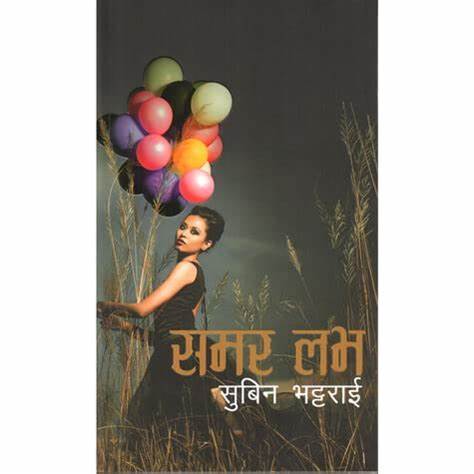
Review:
Summer Love by Subin Bhattarai is a heartwarming and tender love story set against the backdrop of Kathmandu, Nepal. It is a captivating exploration of young love, personal growth, and the complexities of relationships, all within the context of a vibrant and evolving city.
The novel follows the lives of Atit and Saya, two college students who meet by chance and find themselves drawn to each other. Subin Bhattarai delicately portrays the blossoming romance between the two characters, capturing the innocence, excitement, and emotional turbulence that often accompanies first love. As their relationship unfolds, the readers are taken on a nostalgic journey of self-discovery and the joys and challenges that come with it.
One of the notable strengths of Summer Love lies in its relatability. The characters, Atit and Saya, are depicted with depth and authenticity, reflecting the dreams, ambitions, and insecurities of many young adults. Their individual journeys are intertwined with broader themes of societal expectations, cultural norms, and the pursuit of personal aspirations, creating a narrative that resonates with readers of various backgrounds.
Bhattarai’s writing style is simple, yet effective, allowing the emotions and experiences of the characters to take center stage. The prose flows effortlessly, capturing the essence of Kathmandu’s vibrant atmosphere and the complexities of human relationships. The author’s attention to detail and vivid descriptions transport readers to the bustling streets, quaint cafes, and beautiful landmarks of the city, enhancing the overall reading experience.
The novel also touches upon the dynamics of friendship and family relationships, providing a well-rounded portrayal of the characters’ lives. Through the interactions between Atit and his friends, as well as Saya’s bond with her sister, the readers witness the importance of support systems and the impact they have on personal growth and decision-making.
Summer Love successfully explores universal themes of love, dreams, and the pursuit of happiness, making it relatable to readers beyond the Nepali context. It highlights the transformative power of love and the inherent challenges that accompany it, presenting a realistic portrayal of the highs and lows of relationships.
While Summer Love primarily focuses on the romantic relationship between Atit and Saya, the novel also sheds light on broader social issues, such as gender roles and societal expectations. It prompts readers to reflect on the influence of cultural norms and traditions on individual choices and the need for breaking free from societal constraints.
In conclusion, Summer Love is a beautifully written novel that captures the essence of young love, personal growth, and the dynamics of relationships. Subin Bhattarai’s storytelling prowess, combined with the relatable characters and the vivid depiction of Kathmandu, creates a delightful and engaging read. It is a book that will leave readers reminiscing about their own summer loves and pondering the transformative power of relationships.
Rating: ★★★★☆
4. Karnali Blues | Author: Buddhisagar
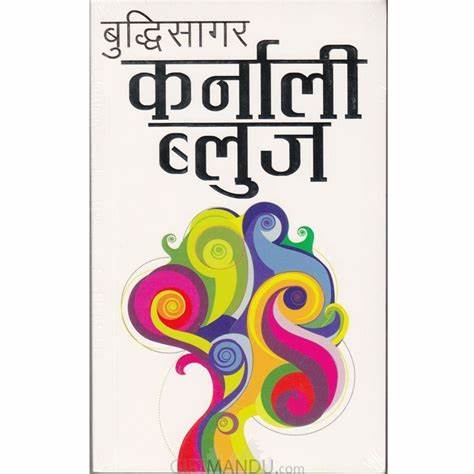
Review:
Karnali Blues, written by Buddhisagar, is a deeply poignant and introspective novel that takes readers on a profound and emotional journey through the vast landscapes of the Karnali region in Nepal. It is a captivating coming-of-age story that delves into the complexities of identity, the struggle for self-discovery, and the powerful ties that bind us to our roots.
The novel revolves around the life of the protagonist, Ratan, and his experiences growing up in a remote village in Karnali. Buddhisagar’s masterful storytelling immerses readers in the beauty, simplicity, and harsh realities of rural Nepal. The vivid descriptions of the landscape, from the majestic mountains to the raging rivers, evoke a sense of awe and provide a rich backdrop to Ratan’s personal journey.
One of the greatest strengths of Karnali Blues lies in its deeply introspective nature. The novel beautifully captures the inner turmoil and conflicts faced by Ratan as he grapples with questions of identity, societal expectations, and his own dreams. The author weaves together past and present, effortlessly blending memories and experiences to paint a vivid portrait of a young man’s struggle to find his place in the world.
Buddhisagar’s prose is elegant and evocative, carrying a lyrical quality that resonates with the readers. The language flows seamlessly, creating a mesmerizing narrative that captures the essence of both the external world and the inner emotions of the characters. The author’s ability to convey the complexities of human emotions with sensitivity and depth is truly commendable.
The characterization in Karnali Blues is a standout aspect of the novel. Ratan and the supporting characters are skillfully developed, each bringing their own distinct voice and perspective to the story. Their interactions and relationships are authentic and nuanced, reflecting the complexities of familial ties, friendships, and societal dynamics. The reader becomes emotionally invested in their journeys, sharing their joys, sorrows, and personal growth.
Moreover, Karnali Blues touches upon universal themes of love, loss, longing, and the search for meaning and purpose. It explores the impact of societal norms and traditions on individual lives, challenging readers to question established notions of success and happiness. The book presents a poignant commentary on the clash between tradition and modernity, and the tension between personal aspirations and societal expectations.
In conclusion, Karnali Blues is a captivating and thought-provoking novel that leaves a lasting impact on its readers. Buddhisagar’s exquisite storytelling, coupled with his deep understanding of human emotions and the Nepali landscape, creates a narrative that is both engaging and introspective. It is a literary gem that explores universal themes of self-discovery and the search for one’s place in the world.
Rating: ★★★★☆
5. Jivan Kada Ki Phool | Author: Jhamak Kumari Ghimire
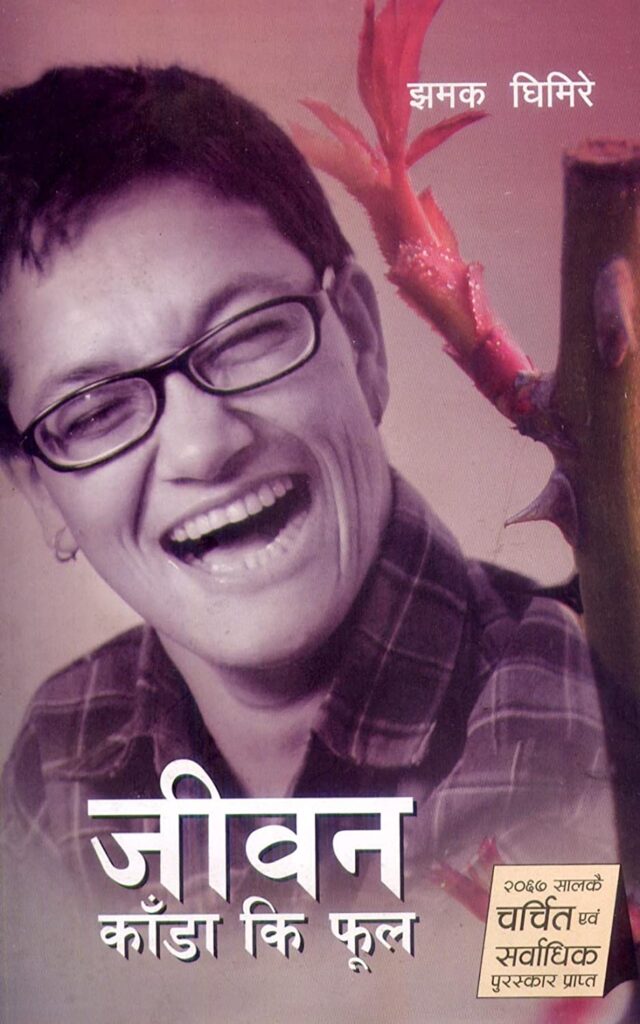
Review:
Jivan Kada Ki Phool, penned by Jhamak Kumari Ghimire, is a profoundly moving and inspirational memoir that chronicles the extraordinary journey of the author, who overcame physical disabilities to find her voice as a writer. This deeply personal and introspective work offers a poignant glimpse into the life of a remarkable individual and the resilience of the human spirit.
The memoir traces Jhamak Kumari Ghimire’s life from her childhood in rural Nepal to her struggles with cerebral palsy and the challenges she faces in a society that often marginalizes individuals with disabilities. The author’s vivid and heartfelt storytelling brings the readers into her world, allowing them to experience the joys, sorrows, and triumphs that shape her life.
One of the most remarkable aspects of Jivan Kada Ki Phool is Ghimire’s ability to convey the profound beauty and power of language. Despite her physical limitations, she discovers solace and freedom in writing, using words as a means to express her innermost thoughts and emotions. Through her eloquent prose, Ghimire immerses readers in her experiences, creating a connection that transcends physical boundaries.
The memoir also offers a poignant exploration of the themes of family, love, and personal growth. Ghimire’s deep love and gratitude for her parents, who supported and encouraged her throughout her journey, shine through the pages. Her relationship with her siblings and the dynamics within her family provide a rich tapestry of love and support in the face of adversity.
Moreover, Jivan Kada Ki Phool highlights the importance of inclusivity and understanding in society. Ghimire’s experiences shed light on the challenges faced by individuals with disabilities, and she confronts societal prejudices with grace and resilience. Her story serves as a powerful reminder that every individual, regardless of physical limitations, deserves to be seen and heard.
The writing style of Jhamak Kumari Ghimire is evocative and deeply reflective. Her words are infused with raw emotions and an unwavering determination to share her story with the world. The memoir’s pacing allows readers to absorb the depth of her experiences, offering moments of introspection and contemplation.
In conclusion, Jivan Kada Ki Phool is an extraordinary memoir that leaves a lasting impact on its readers. Jhamak Kumari Ghimire’s courageous and honest narrative invites us to reflect on our own lives, appreciate the power of resilience, and recognize the strength that lies within us. It is a testament to the indomitable human spirit and a celebration of the transformative power of words.
Rating: ★★★★☆
Also Read:
6 Scientific Benefits of Reading Books: Why you should read more | Offline Thinker | By Shreeansha Bhattarai – Offline Thinker
Read more from Offline Thinker:
Follow Offline Thinker on Facebook, Twitter, and Instagram. You can send us your writings at connect.offlinethinker@gmail.com




